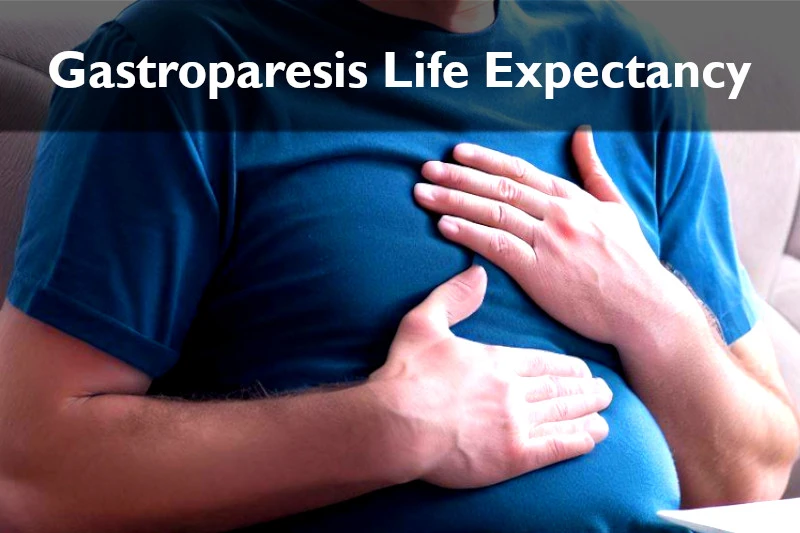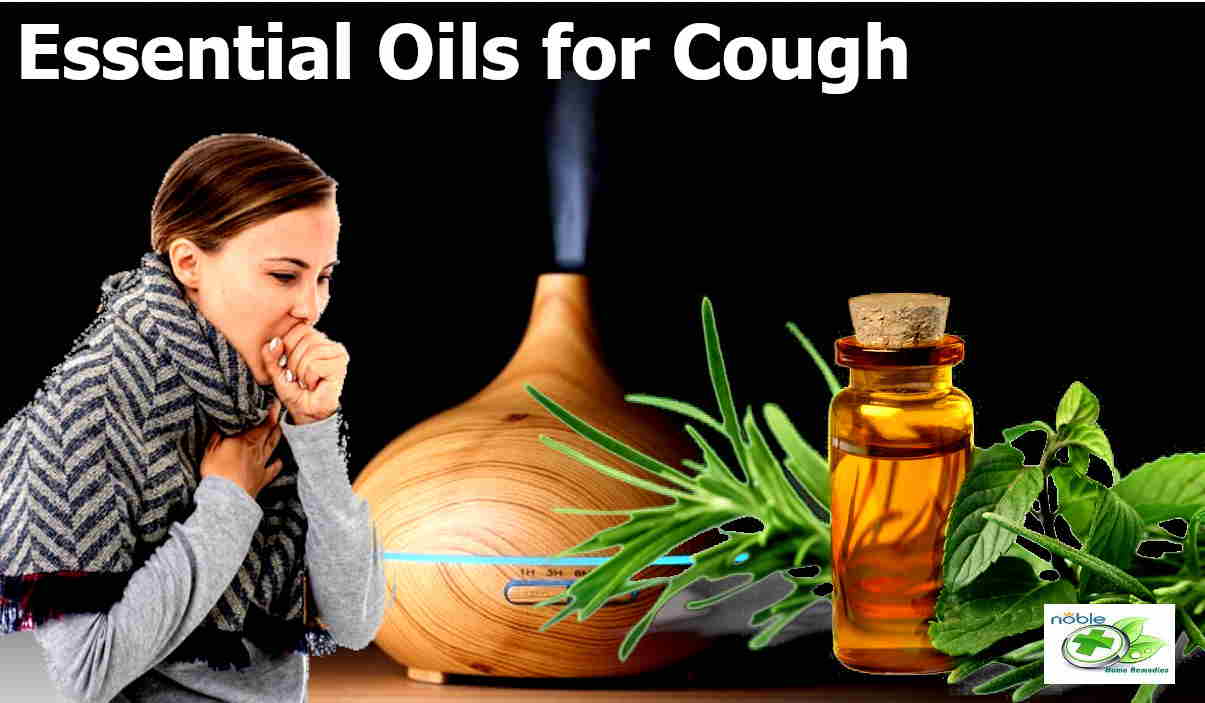Cholesterol is a type of lipid molecule that is essential for the proper function of all cells in the body. It is a waxy, fat-like substance that is found in the cell membranes of all body tissues. Cholesterol is required for the synthesis of several important hormones and is needed for the proper absorption of fat-soluble vitamins. The point is excess fat causes undesirable health conditions. This article covers how to lower cholesterol naturally without medication.
There are two main types of cholesterol low-density lipoprotein (LDL) and high-density lipoprotein (HDL).
- LDL cholesterol is often referred to as “bad” cholesterol because it can build up in the arteries, making them narrower and less flexible. It can then block blood flow and lead to heart disease.
- HDL cholesterol is often referred to as “good” cholesterol. It is because it helps remove LDL cholesterol from the arteries and prevents it from building up.
Cholesterol is an important part of a healthy diet, but too much cholesterol can be harmful to your health.
Eating foods that are high in cholesterol can raise your LDL cholesterol levels and increase your risk for heart disease. You can help keep your cholesterol levels in check by eating a healthy diet, maintaining a healthy weight, and getting regular exercise

Things That Cause High LDL Cholesterols: High LDL cholesterol levels can be caused by a number of different factors, including lifestyle choices, diet, and genetics. Here are some of the most common causes of high LDL cholesterol:
- Unhealthy lifestyle choices: Smoking, being overweight or obese, and leading a sedentary lifestyle can all contribute to high LDL cholesterol levels.
- Unhealthy diet: Eating foods that are high in saturated and trans fats can raise LDL cholesterol levels.
- Lack of Exercise: A sedentary lifestyle can lead to higher LDL cholesterol levels.
- Diabetes: People with diabetes have higher LDL cholesterol levels.
- Age: As you age, your LDL cholesterol levels may rise.
- Genetics: Some people are simply more prone to high LDL cholesterol levels due to their genes. If you have a family history of high cholesterol, you may be at an increased risk.
Making healthy lifestyle choices, eating a healthy diet, and knowing your cholesterol levels can all help to keep LDL cholesterol levels under control.
If you are concerned about your cholesterol levels, talk to your doctor to see if you need to make any changes to your lifestyle or diet.
Table of Contents
What Foods That Lower Cholesterol Naturally and Quickly?
There are also a number of foods that can help lower cholesterol levels. Mainly vegetables whole grains and beans are the best. Keep on reading how to reduce cholesterol in 30 days easily. Here are the top 10 foods you can bet on to lower cholesterol naturally:
1. Green Leafy Vegetables
Green vegetables are high in phytonutrients or phytochemicals. Phytochemicals have been shown to decrease the level of low-density lipoprotein (LDL). Green vegetables have many health benefits. To lower cholesterol, naturally, green vegetables are at the top of the list.
There are many leafy greens that can lower LDL cholesterol levels. The daily value for leafy greens is about 2-3 cups. Leafy greens are a great source of fiber, vitamins, and minerals. They can also help to lower blood pressure and improve heart health.
The best vegetables are lettuce varieties, cauliflower, kale, broccoli, brussels sprouts, cabbage, turnips, and onions.
Eating vegetables regularly protects blood vessels from damage by fat clotting inside. Green vegetables prevent the accumulation of unwanted cholesterol in the blood vessels.
The study by the Department of Clinical Research, School of Biological and Biomedical Sciences, Galgotias University confirms….
“Through the employment of phytochemicals, which are found in plants, the cholesterol levels in the blood can be lowered effectively”
The Department of Clinical Research, School of Biological and Biomedical Sciences, Galgotias University
Green leafy vegetables top the list of foods that lower cholesterol naturally. Apart from that green leafy vegetables provide many health benefits. It is safe and there is no limit as such how much one should eat every day.
2. Almonds
Almonds can help to lower cholesterol. In addition, almonds are also a good source of fiber. This is important because fiber can help to remove cholesterol from the body.
Recent studies have shown that almonds can help to lower cholesterol levels and improve heart health. According to the USDA, one ounce (about 23 almonds) of almonds contains:
- 6 grams of protein
- 3.5 grams of fiber
- 14 grams of healthy unsaturated fats
- Only 1 gram of saturated fat
- 0 grams of cholesterol
- 37% of the Daily Value for Vitamin E
- 20% of the Daily Value of magnesium
Almonds also contain L-arginine, an amino acid that has been shown to improve blood flow and lower blood pressure.
The unsaturated fats in almonds help to reduce LDL (“bad”) cholesterol levels while increasing HDL (“good”) cholesterol levels.
And the fiber in almonds helps to keep cholesterol from being absorbed into the bloodstream.
According to the FDA, eating 1.5 ounces of almonds each day can help to lower your cholesterol. This is because almonds are a good source of monounsaturated fats, which have been shown to help lower cholesterol. If you choose almond milk instead, then drink 3 ounces every day.
In one study, participants who ate 1.5 ounces of almonds per day for four weeks had a significant reduction in their LDL cholesterol levels.
So, if you are looking for a way to lower your cholesterol, adding a handful of almonds to your daily diet is a great place to start. Just be sure to limit your intake to 1-2 ounces per day.
3. Turmeric
Turmeric is a spice that has been used in India for centuries. The active ingredient in turmeric is curcumin, which has been shown to have many health benefits. One of these benefits is the ability to lower cholesterol naturally and quickly.
Turmeric can help to lower cholesterol by reducing the amount of LDL (bad) cholesterol in the blood.
Studies have shown that turmeric can lower LDL cholesterol by up to 33%. It can also help to increase HDL (good) cholesterol levels. HDL cholesterol helps to remove LDL cholesterol from the blood.
Turmeric can also help to lower blood pressure and improve circulation. Both of these effects can help to reduce the risk of heart disease.
In addition to its cholesterol-lowering effects, turmeric is also a low-calorie, low-fat spice that can help to boost weight loss.
According to the National Institutes of Health, the daily value of turmeric is 3 grams. This is the amount that is typically consumed in one serving of curry.
Turmeric is available in powder form, capsules, and tinctures. It can also be found in some food products, such as curry powders and mustard.
4. Oats
Oats are one such food that has a unique soluble fiber called beta-glucan. Studies on beta-glucan have been shown to reduce LDL cholesterol levels. In addition, oats are a good source of antioxidants and phytochemicals, which may also help to lower LDL cholesterol levels.
Oats contain soluble fiber, which helps reduce LDL cholesterol.
The daily value for oats is 1/2 cup dry (40g), which is equivalent to about 1 cup cooked. To get the most benefit, aim to eat at least this amount every day.
You can add oats to your breakfast cereal, make oatmeal for breakfast, or add them to soups, stews, and casseroles.
5. Barley
When it comes to boosting HDL cholesterol levels, few things are as effective as barley.
This humble grain has been shown to significantly increase levels of HDL cholesterol in just a matter of weeks. And best of all, the effects are long-lasting. But how exactly does barley work its magic?
The answer lies in two key compounds found in barley ie; beta-glucan and plant sterols.
Beta-glucan is a type of soluble fiber that has been shown to reduce LDL cholesterol levels. Plant sterols, on the other hand, work by blocking the absorption of cholesterol in the gut.
Together, these two compounds make barley a potent weapon against high cholesterol. Barley is also low in saturated fat and calories which is good for controlling LDL cholesterol.
Barley is a whole grain that is often consumed in the form of malt, which is used to make beer and whisky. It is also a popular food ingredient in many cultures.
Some recent studies have suggested that barley can help to boost HDL cholesterol levels. One study found that consuming barley for just four weeks increased HDL cholesterol by 7.5%.
The daily value for barley is 50 grams. This means that consuming just one cup of barley per day could help to increase HDL cholesterol levels.
Barley also happens to be a rich source of magnesium – a mineral that is essential for maintaining a healthy heart.
If you are looking to boost your HDL cholesterol levels, then incorporating barley into your diet could be a good option. Try adding it to soups, and stews, or simply enjoy a cup of barley tea.
6. Garlic
Garlic is a common ingredient in many dishes and has a variety of health benefits. One of these benefits is that garlic can help to lower cholesterol.
The daily value for cholesterol is 300 mg. Consuming garlic can help lower cholesterol levels, which can reduce the risk of heart disease. High cholesterol is a major factor in the development of heart disease, so lowering it can have a significant impact on overall health.
Studies have shown that garlic can help to lower cholesterol levels. In one study, people who took a garlic supplement for 12 weeks had a significant reduction in their LDL (“bad”) cholesterol levels. LDL cholesterol is the type of cholesterol that is most likely to cause plaque build-up in your arteries.
In addition to lowering cholesterol, garlic can also help to lower blood pressure. This is another key factor in the development of heart disease. By consuming garlic on a regular basis, it is possible to reduce blood pressure and improve heart health.
The amount of garlic you need to take to see these benefits varies depending on the form you take it in. For example, you would need to eat about two cloves of fresh garlic daily to get the same effect as taking a garlic supplement. Garlic is one of the dependable supplements to lower cholesterol.
Garlic is also low in calories and fat. This makes it a great addition to a healthy diet. Including garlic in the diet can help to improve overall health and well-being.
7. Beans
Beans are a good source of soluble fiber. Beans are a good source of fiber and nutrients, including protein, folate, and iron. Fiber, in particular, can help reduce LDL cholesterol levels.
They also contain saponins, a type of phytochemical that has been shown to reduce LDL cholesterol.
Apart from that beans also contain antioxidants and phytochemicals that may promote health.
The daily value for fiber is 25 grams. Most Americans consume less than half of that amount. To boost HDL cholesterol, aim for at least 30 grams of fiber per day.
Beans are a great way to reach your goal. One cup of cooked beans contains about 15 grams of fiber.
8. Fish
Fish, especially oily fish, such as salmon, mackerel, and sardines, are a good source of omega-3 fatty acids. These fatty acids help reduce LDL cholesterol and triglyceride levels.
Fish is a good source of protein and contains many nutrients that are beneficial to our health. One of these nutrients is omega-3 fatty acids, which have been shown to lower LDL (bad) cholesterol levels.
The American Heart Association (AHA) recommends eating fish at least twice a week. The AHA also recommends that people with heart disease eat fish with a high level of omega-3 fatty acids, such as salmon, mackerel, herring, lake trout, sardines, and albacore tuna.
The daily value (DV) for omega-3 fatty acids is 1660mg. This means that if you eat two servings of fish per week, you will get more than the DV for omega-3 fatty acids.
9. Okra
One of the foods that can help support a healthy cholesterol level. these are okra.
Okra, also known as lady’s fingers, is a nutrient-rich vegetable that is native to Africa. It is a member of the mallow family and is related to hibiscus and cotton. Okra is a good source of fiber, vitamins C and K, and folic acid. It also contains phytonutrients that have been shown to have cholesterol-lowering properties.
One study showed that eating okra daily lowered LDL cholesterol levels by up to 21% after eight weeks. The mechanism by which okra lowers cholesterol is not fully understood, but it is thought to be due to its soluble fiber content. Soluble fiber binds to cholesterol and bile acids in the intestine and prevents their absorption.
The daily value for okra is 3/4 cup cooked. This amount can be easily incorporated into your diet by adding it to soups, stews, or curries. You can also roast, sauté, or grill okra to add to salads or as a side dish.
So, next time you’re looking for food to help support a healthy cholesterol level, reach for some okra.
10. Walnuts
Walnuts are one type of food that can help lower our LDL cholesterol levels. Walnuts contain a type of fatty acid known as alpha-linolenic acid (ALA). This fatty acid helps convert LDL cholesterol into a healthier form of cholesterol known as HDL cholesterol.
Additionally, walnuts are a good source of fiber which lowers LDL cholesterol levels.
The daily value for walnuts is 1.5 ounces or about 42 grams. This is the number of walnuts that should be consumed daily in order to lower LDL cholesterol levels.
Does Red Wine Help in Cholesterol Diet?
Red wine, in particular, has been shown to help lower cholesterol levels and reduce the risk of heart disease. The polyphenols found in red wine are thought to be responsible for these heart-healthy benefits.
Polyphenols are a type of antioxidant. They help to protect your cells from damage and reduce inflammation. Inflammation is a major risk factor for heart disease.
The flavonoids in red wine can also help to lower cholesterol levels. One study found that men who drank red wine every day had lower levels of LDL (bad) cholesterol and higher levels of HDL (good) cholesterol than those who didn’t drink red wine.
Red wine is also a good source of resveratrol. This is a type of polyphenol that has been shown to have even more heart-healthy benefits than other polyphenols.
Resveratrol can help to prevent blood clots, reduce inflammation, and protect the lining of your blood vessels.
It’s important to remember that you should only drink red wine in moderation. That means no more than one glass per day for women and two glasses per day for men. Drinking more than this can actually increase your risk of heart disease.
So, if you’re looking for a way to help keep your heart healthy, add a glass of red wine to your daily routine. Just be sure to drink it in moderation and enjoy it responsibly.
What to Do When You Have High Triglyceride Levels
If you have high triglyceride levels, there are a few things you can do to lower them.
- First, you can try to lose weight if you are overweight. Losing weight will help to lower your triglyceride levels.
- Try to exercise more. Exercise can help to lower your triglyceride levels by helping to use up the triglycerides in your body.
- Try to change your diet. Eating less fat and sugar will help to lower your triglyceride levels.
- If you are a smoker, quitting smoking will also help to lower your triglyceride levels. It is important to limit your alcohol intake too.
- If you have been diagnosed with high triglyceride levels, it is important to work with your doctor to develop a treatment plan.
What are the Foods to avoid for LDL Cholesterol?
If you have high LDL cholesterol, there are certain foods you should avoid in order to keep your cholesterol levels in check. Saturated and trans fats are the main culprits when it comes to foods that can raise your LDL cholesterol levels. Here are some specific foods to avoid if you have high LDL cholesterol:
Avoid Trans Fats
Trans fats are created when food manufacturers turn liquid oils into solids. Trans fats raise LDL cholesterol levels and lower HDL cholesterol levels. Foods high in trans fats include margarine, shortening, fried foods, and processed baked goods.
Foods to Avoid to Improve Lower Cholesterol Diet
- Saturated Fats: Saturated fats are the main dietary cause of high LDL cholesterol. Foods high in saturated fats include red meat, full-fat dairy products, butter, lard, palm oil, and coconut oil.
- Cholesterol-Rich Foods: Cholesterol is found in animal-based foods such as eggs, liver, and shrimp. Eating foods high in cholesterol can raise your LDL cholesterol levels.
- Refined Carbohydrates: Refined carbohydrates are found in foods such as white bread, pasta, and pastries. These foods are quickly converted to sugar, which can raise blood sugar levels and promote inflammation.
- Sugar: Sugar is a type of carbohydrate that is quickly converted to blood sugar. When blood sugar levels are high, it can damage the lining of arteries and promote inflammation.
- Alcohol: Alcohol consumption can raise LDL cholesterol levels and triglyceride levels. If you drink alcohol, limit your intake to no more than 1-2 drinks per day.
- Processed Meats: Processed meats are high in saturated fat and sodium. They can also contain added sugar and chemicals. Processed meats include bacon, sausage, hot dogs, and deli meats.
- Hydrogenated Oils: Hydrogenated oils are created when manufacturers add hydrogen to liquid oils to make them solid at room temperature. Hydrogenated oils are found in margarine, shortening, and some peanut butter.
- Foods High in Sodium: Sodium is a type of salt that can raise blood pressure and promote fluid retention. Foods high in sodium include processed foods, canned soups, and fast food.
- Unhealthy fats: Unhealthy fats, such as trans fats and saturated fats, can raise your LDL cholesterol levels and promote inflammation.
Takeaway
High cholesterol is a major risk factor for heart disease, and by keeping your cholesterol levels under control, you can greatly reduce your risk of developing heart disease.
There are a few different ways to lower your cholesterol levels. The best way to do this is to make sure that you are eating a healthy diet. Also, doing plenty of exercises. Focus on the above-mentioned foods that lower cholesterol fast.
While there are medications that can help, making changes to your diet is one of the best ways to lower your cholesterol. Foods that are high in fiber, like oats and beans, can help to lower cholesterol naturally.
Other foods like fatty fish, olive oil, and nuts can also help to keep your cholesterol levels in check. Making these changes to your diet can help to improve your overall health and lower your risk of heart disease.
If you have high cholesterol, your doctor may also recommend that you take medication to help lower your cholesterol levels.
By taking care of your cholesterol levels, you can greatly reduce your risk of developing heart disease.
4 Sources:
Noble Home Remedies relies on peer-reviewed studies, academic research institutions, and medical associations for accuracy and reliability while avoiding tertiary references. Our editorial policy provides more information about how we ensure our content is accurate and up-to-date.
- What is high cholesterol? by CDC
- Phytochemicals effective in lowering Low-Density Lipoproteins: Journal of Biological Engineering Research and Review
- Fish and Omega-3 Fatty Acids by American Heart Association
- Red wine and resveratrol: Good for your heart?: Mayo Clinic






